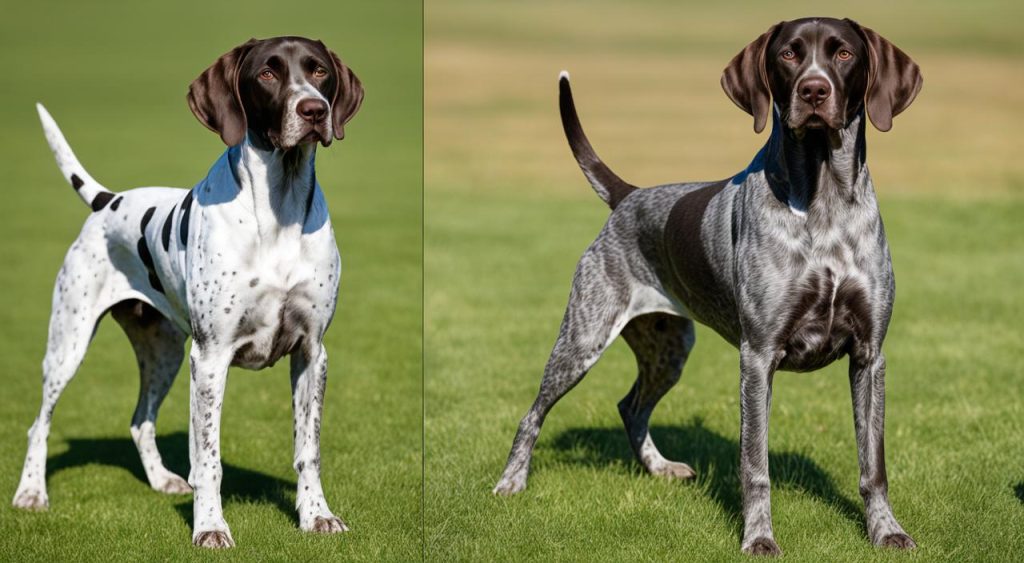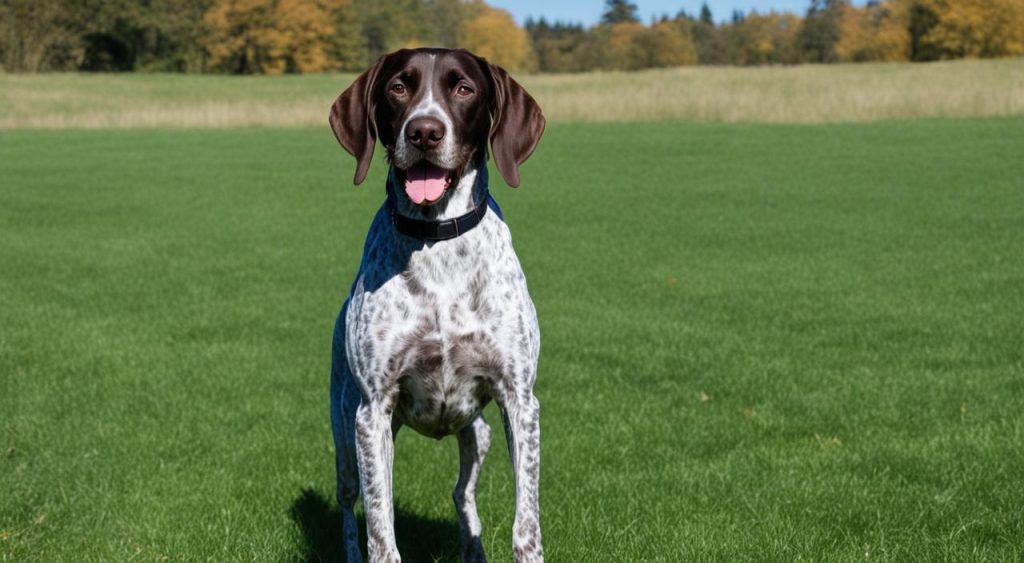German Shorthaired Pointers are a popular and versatile breed known for their energy and intelligence. However, like any dog breed, they have their own set of weaknesses and challenges that potential owners should be aware of.
One of the main weaknesses of German Shorthaired Pointers is their high energy level. These dogs require regular and vigorous exercise to keep them physically and mentally stimulated. Without proper exercise, they may exhibit behavioral issues such as hyperactivity, excessive barking, and destructive chewing.
Another weakness of German Shorthaired Pointers is their tendency to have a reserved or friendly approach towards strangers. While this can be a positive trait, it can also lead to aggression towards unfamiliar dogs or a strong prey drive towards small animals. It is important to manage and train these instincts from a young age.
Obedience training is crucial for German Shorthaired Pointers as they can be easily distracted and highly independent. They have a mind of their own, which can make training challenging and requires patience and consistency.
Additionally, German Shorthaired Pointers have a potential for separation anxiety. When left alone for extended periods, they may become anxious and exhibit destructive behavior. They thrive on companionship and do best in environments where they have constant interaction and stimulation.
While German Shorthaired Pointers can be a loving and loyal breed, their weaknesses and challenges should be carefully considered before bringing them into your home. Providing adequate exercise, training, and companionship will help ensure a happy and well-adjusted German Shorthaired Pointer.
Key Takeaways:
- German Shorthaired Pointers have high energy levels and require vigorous exercise and mental stimulation.
- They may show aggression towards unfamiliar dogs and have a strong prey drive towards small animals.
- Obedience training is crucial due to their distractibility and independence.
- They have a potential for separation anxiety and require constant companionship.
- Consider the challenges associated with these weaknesses before adopting a German Shorthaired Pointer.
Challenges of German Shorthaired Pointers
German Shorthaired Pointers have their fair share of challenges that potential owners need to be aware of. One significant challenge is their high prey drive, which can make it difficult to train them not to chase smaller animals. This instinct requires consistent and early effort to manage effectively.
Another challenge is their tendency to jump, especially when they are young. This behavior can pose a problem for small children and elderly individuals who may be easily knocked over. It’s important to address this issue through training and socialization.
Furthermore, German Shorthaired Pointers are prone to developing separation anxiety if left alone for long periods of time. This can lead to destructive behavior, as they rely on companionship and may become anxious or stressed when left on their own.
During their puppy phase, German Shorthaired Pointers can exhibit high energy levels, attention problems, willfulness, and independence. This requires patience and time during training sessions, as they can be easily distracted and have a strong independent mindset.
Despite these challenges, with the right training, socialization, and understanding, German Shorthaired Pointers can be wonderful companions. It’s important to be prepared for the unique characteristics and needs of this breed to ensure a harmonious and fulfilling relationship.
Conclusion
German Shorthaired Pointers are a versatile and energetic breed that can make wonderful companions for the right owners. However, it’s essential to understand their limitations and consider these factors before bringing one into your home.
Firstly, German Shorthaired Pointers have high energy demands. They require regular vigorous exercise and mental stimulation to prevent behavioral issues and keep them happy. This means dedicating time and effort to activities such as long walks, runs, or engaging play sessions.
Secondly, due to their prey drive, German Shorthaired Pointers may not be suitable for households with small pets. Their instinct to chase and hunt smaller animals can be challenging to manage, especially when not trained from an early age.
Lastly, German Shorthaired Pointers can be a handful for inexperienced dog owners. Their boisterous personalities and independent nature require consistent training and structure. Additionally, they may experience separation anxiety if left alone for long periods, which can lead to destructive behavior.
While German Shorthaired Pointers have their limitations, with the right environment and dedicated owners who can meet their specific needs, they can thrive and become loving, loyal companions for years to come.





